Why it’s Important:
NOFA Accreditation Course in Organic Land Care
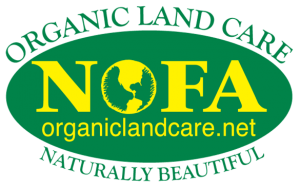 As a member of Northeast Horticultural, I’m proud to be a part of an organization that understands and represents the importance of organics in a time of advancements in the field. One way that we strive to meet organic standards in the landscape industry is by being a part of NOFA (Northeast Organic Farming Association). The NOFA accreditation course highlights topics such as: soil biology/chemistry, lawn care, insect, weed, and disease management, stormwater control, composting, invasive plant species, and building regenerative landscapes to name a few. This course encourages us to stay up to date with the rapidly changing organic industry.
As a member of Northeast Horticultural, I’m proud to be a part of an organization that understands and represents the importance of organics in a time of advancements in the field. One way that we strive to meet organic standards in the landscape industry is by being a part of NOFA (Northeast Organic Farming Association). The NOFA accreditation course highlights topics such as: soil biology/chemistry, lawn care, insect, weed, and disease management, stormwater control, composting, invasive plant species, and building regenerative landscapes to name a few. This course encourages us to stay up to date with the rapidly changing organic industry.
Why Go Organic?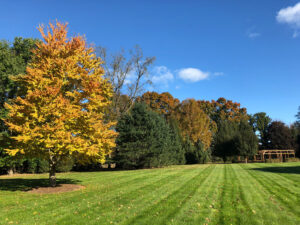
Anyone’s first question when I begin to describe my passion for organics is simply, “why go organic?” The common misconception is that the word organic only applies to food – not their lawn, plant, and tree care services. The reality is the term applies to both and ultimately the mission is the same. Organic practices have become popular in the last 10-15 years because of the desire to be ecologically, socially and economically just. There’s a shift from having the most attractive lawn or trees in the neighborhood no matter the cost to the environment – to wanting the aesthetic beauty along with the ethical initiatives. That is what organics provides. Now, just like switching over from an inorganic diet to an organic one, the positive results can take some time, and transitioning a lawn can be the same. I’m sure to tell our clients that yes, an organic lawn is a great idea, but that it takes some time to have it looking the same way as a healthy conventional lawn. Nature likes to test our patience. One way I learned to progress an organic lawn is to apply regular applications of compost tea. We mix our own at the shop and gear it towards nourishing and regenerating soils for the overall microbial health in each lawn.
 Where to Begin?
Where to Begin?
We start with these steps:
1) Diagnose current soil condition via a soil test.
2) Inoculate essential critters and materials in the soil to promote a healthy environment.
3) Maintain that environment and watch it start to thrive almost entirely on its own.
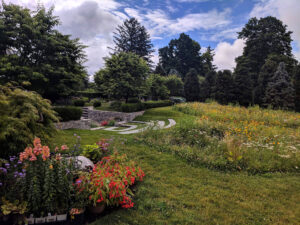 The three important factors to consider when transitioning a lawn from conventional to organic is soil testing, pH analysis, and increasing microbial life in the soil. Fertilizer can be applied all day long, but until the pH is balanced at roughly 6.5 (for turfgrass) and there are plenty of microbes busy in the soil, nutrient availability can be limited. Contrary to popular belief, fertilizer is not food for the lawn. Fertilizer is food for the bacteria and fungi (decomposers) in the soil. In turn, bacteria and fungi break down organic matter in the soil. Organic matter then feeds microbes, buffers pH, improves soil structure, increases water holding capacity, cation and anion exchange capacity, and overall productivity of the soil. There is no correlation between how much fertilizer is put down and how much is taken up by the plant. Like a well-balanced diet, soils and plants need to be the same. PH, organic matter, microbial life, fertilizer, water, air, and parent material (sand, silt, clay) all need to be working in conjunction to have a healthy, aesthetically appealing lawn. Because once the “good stuff” in your lawn is thriving, it outcompetes the “bad stuff”- the pests, diseases, and invasive plant species like crabgrass and strawberry vine.
The three important factors to consider when transitioning a lawn from conventional to organic is soil testing, pH analysis, and increasing microbial life in the soil. Fertilizer can be applied all day long, but until the pH is balanced at roughly 6.5 (for turfgrass) and there are plenty of microbes busy in the soil, nutrient availability can be limited. Contrary to popular belief, fertilizer is not food for the lawn. Fertilizer is food for the bacteria and fungi (decomposers) in the soil. In turn, bacteria and fungi break down organic matter in the soil. Organic matter then feeds microbes, buffers pH, improves soil structure, increases water holding capacity, cation and anion exchange capacity, and overall productivity of the soil. There is no correlation between how much fertilizer is put down and how much is taken up by the plant. Like a well-balanced diet, soils and plants need to be the same. PH, organic matter, microbial life, fertilizer, water, air, and parent material (sand, silt, clay) all need to be working in conjunction to have a healthy, aesthetically appealing lawn. Because once the “good stuff” in your lawn is thriving, it outcompetes the “bad stuff”- the pests, diseases, and invasive plant species like crabgrass and strawberry vine.
As a landscape professional it is my duty to ensure that our clients needs are met. This project looks different for everyone, but I’m helping many along in their organic landscape journey. Becoming NOFA accredited allows me to provide you with the current standards in organic lawn and plant care.
If you are interested in seeing if this is the right type of program for your property, give us a call at 203-375-0553 or contact us here.
by Sandra Denall, Account Manager
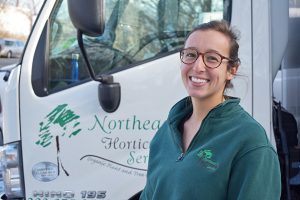 Sandra joined us as an Account Manager with a background in greenhouse plant production, landscape maintenance and design, urban agriculture, and nursery plant care. Sandra not only has an extensive knowledge of Landscape Horticulture from the degree she earned, but she also carries a passion for creating native landscapes and maintaining them organically. She strongly believes we should work with the environment, not against it.
Sandra joined us as an Account Manager with a background in greenhouse plant production, landscape maintenance and design, urban agriculture, and nursery plant care. Sandra not only has an extensive knowledge of Landscape Horticulture from the degree she earned, but she also carries a passion for creating native landscapes and maintaining them organically. She strongly believes we should work with the environment, not against it.


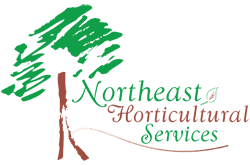
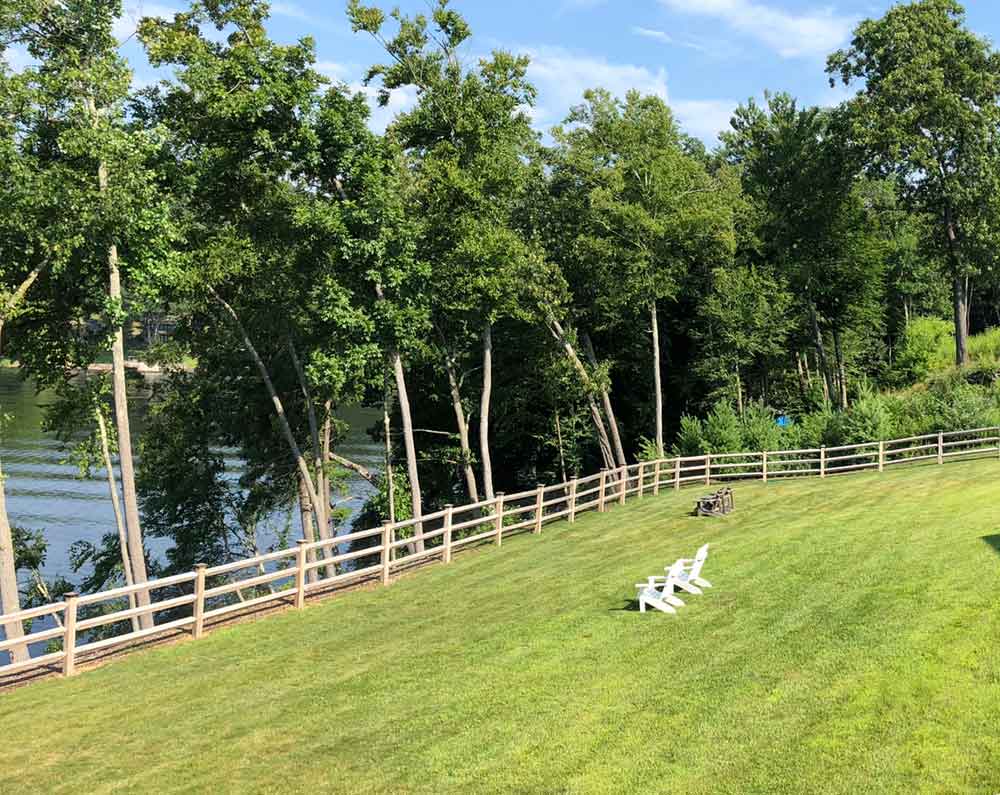
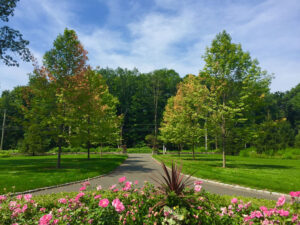 Where to Begin?
Where to Begin?